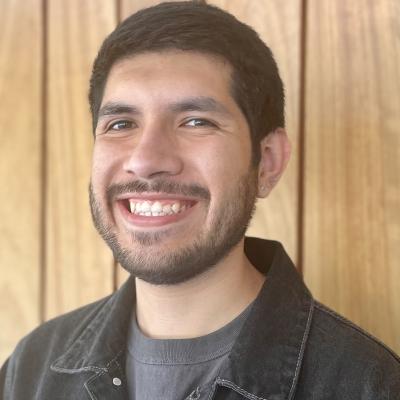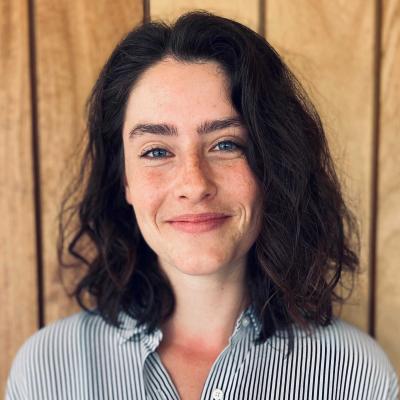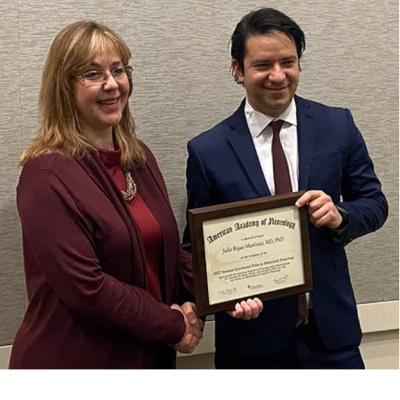Previous Spotlights

- Get to know our Clinical Research Coordinator for the Clinical Trials Program!
- What is your role at UCSF?
I am a Clinical Research Coordinator, my role is to be the point of contact for patients looking to participant in clinical trials and coordinator with physicians, nurses, and the patient to comply with study treatment.
- Who/what inspired you to pursue the career you have today?
I came from a clinical background but wanted to transition to a role that had a larger impact in the overall treatment of neurodegenerative disease like Alzheimer's disease.
- What is the favorite part about working for UCSF?
I love being at the cutting edge of science and medicine. It's so exciting seeing the overall field can change in only a few years.
- What is your proudest moment at UCSF?
Working with Principal Investigator of my study, Dr. Rojas-Martinez. Our efforts had turned the A3-45 study into a success at UCSF.
- What are your hopes for our industry?
Further mapping of specific genes and their connection to the development of dementia and other neurodegenerative disease.
- What is your favorite vacation destination?
Quartzite Arizona, its basically a giant mineral and gem town!
- What is your favorite meal?
Red molé by my mom.

Get to know our Senior Research Coordinator for the Clinical Trials Program
- What is your role at UCSF?
I am the Senior Clinical Research Coordinator of the clinical trials team in the Boxer Lab. I support a team of fabulous coordinators as we run clinical trials for patients with different types of dementia.
- Who/what inspired you to pursue the career you have today?
I am pursuing a career in medicine. I originally started at UCSF in a different lab, but then joined the clinical trials team to get more hands on experience. I was looking to soak up as much clinical and research experience as possible before moving on to medical school.
- What is the favorite part about working for UCSF?
My favorite part about UCSF is the people - both my coworkers and patients are amazing. Everyone is so passionate about both the science and the implications of our research. I also love seeing my patients and their dedication to helping other people with their same disease.
- What is your proudest moment at UCSF?
There is not one moment I can point to, but I always feel the proudest of the collaboration between the people on my team. I love seeing the coordination between each member of the trials team to efficiently solve each issue that arises and support each other.
- What are your hopes for our industry?
I hope that there will be a greater depth and range of clinical trials available so that anyone with any diagnosis has options for participating in studies involving experimental therapies.
- What is your favorite vacation destination?
The place currently on the top of my bucket list is Croatia, but favorite vacation spot to date is Juneau, Alaska. Growing up, I visited my Aunt in the summers and we would hike up the ski resort’s main mountain to where there was still snow and haul sleds with us. On the way down we would slide down the snow patches until it ran out.
- What is your favorite meal?
A dish that reminds me of home is pasta with a tomato clam sauce. When I was young, my dad would cook that almost weekly and we sat around our kitchen table talking about our day.

Congratulations to Julio Rojas-Martinez, MD, PhD, for being awarded the 2022 Norman Geschwind Prize in Behavioral Neurology, sponsored by the American Academy of Neurology and endowed through Dr. Geschwind’s family, friends, and colleagues; Pfizer Inc; and the Society for Behavioral and Cognitive Neurology.
Dr. Rojas-Martinez’s research, including more than 50 publications, combines clinical behavioral neurology concepts and biofluid analyses, thereby advancing science in aging and dementia.
“I’m deeply grateful to Dr. Geschwind’s family, friends, and colleagues, and the AAN for this honor. The brain is the most fascinating piece of organized matter in the universe. Together with Dr. Geschwind’s genius, vision, and legacy, this award inspires me and invigorates my commitment to help make the field of behavioral neurology one with unparalleled impact on scientific knowledge and care.”
Current research in dementia is focusing on patients in the early stages of disease and new disease-modifying therapeutic strategies. Julio Rojas-Martinez, MD, PhD, University of California San Francisco, San Francisco, CA, speaks on the importance of optimizing management of patients at later stages of disease. Current medications for neuropsychiatric symptoms of dementia have many side effects, so non-pharmacological therapies are recommended as the front-line treatment strategy. Efficacy data supports the use of caregiver education and counselling as a non-pharmacological management strategy. Additionally, individualized programs are recommended for patients with dementia, using tailored activities and therapy sessions to maximize patient autonomy and quality of life. This interview took place at the American Academy of Neurology 2022 Congress in Seattle, WA.